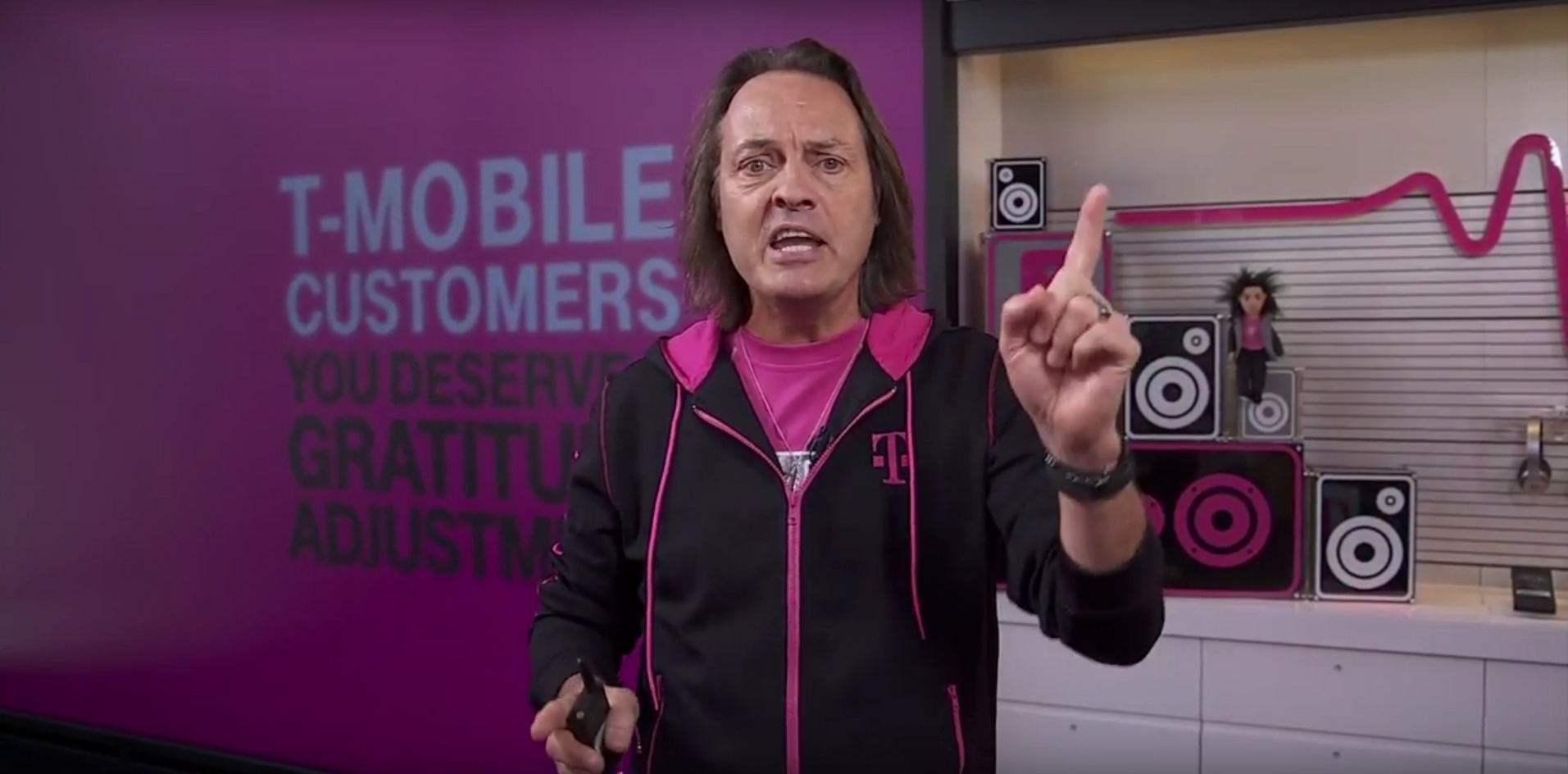Let's Hope The T-Mobile Sprint Merger Keeps Getting Delayed Forever
Much like flying cars, a T-Mobile/Sprint merger always seems to be on the horizon. Rumors first emerged in 2014 about a deal, only for everything to be called off, with regulators to blame. The grapevine sprouted new stories shortly after the corporate-friendly Trump administration took office, and reached fever pitch just a few weeks ago.
We were meant to expect a formal announcement of a deal in late October, but mercifully, it seems that there's been a last-minute reprieve. Bloomberg is reporting that "Sprint, T-Mobile Deal Announcement Is Likely to Be Delayed," with an announcement not expected until November. Let's just keep bumping that date down the road.
The Bloomberg report says that the deal won't be ready in time for T-Mobile or Sprint's earnings later this month, and it's a Wall Street faux-pas to release major news (like a merger) just days after an earnings report. Won't someone think of the poor analysts?!
As a result, the ever-knowledgeable "people familiar with the matter" are predicting a formal announcement sometime in mid-November, giving a few weeks' breathing room. The deal is still said to be provisionally arranged: an all-stock transaction that will make Deutsche Telekom, T-Mobile's parent company, the majority shareholder in a combined T-Mobile Sprint operation.
The big question remaining is whether or not regulators will allow a merger to take place. Analysts have argued the case both ways: the industry is functionally competitive right now (for the first time in a decade!), so a merger should be feasible. On the other hand, a merger would remove the cheapest wireless network in America, Sprint, from the picture, and remove downwards price pressure from the marketplace. Right now, T-Mobile and Sprint are forced to compete for the bottom of the market, and T-Mobile, which has far fewer customers than Verizon or AT&T, is forced to use things like unlimited data plans to bribe subscribers away from the big two.
With Sprint and T-Mobile merging, that's all likely to go away. We can see what happens when you have three equally-sized wireless players by looking at Canada. Competition is low, unlimited plans are nonexistent, and a reasonable plan costs over $100 a month.
Normally, such a mammoth merger would be subject to close scrutiny from the FCC, but the new-look FCC under Trump appointee (and former Verizon lawyer) Ajit Pai has shown no signs of wanting to be tough on big business. It's moved to strike down net neutrality rules, showed no interest in limiting the massive AT&T-Time Warner merger, and is generally viewed as being unlikely to stop a Sprint-T-Mobile merger.
The most we can hope for from the FCC is an order to give up some of Sprint's high-band spectrum holdings. John Gilmer, VP of Data Integrity at network intelligence firm Mosaik, previously told BGR he'd be "very surprised" if Sprint doesn't have to sell some of its high-band spectrum as a regulatory condition of any merger.
With the FCC bowing out of competition regulation, it would fall to the Department of Justice to block any merger. It's difficult to say what exactly would happen there: Trump's DoJ hasn't had a coherent policy on large corporate mergers. One thing worth considering is that any merger would almost certainly kill thousands of retail jobs, as duplicate Sprint and T-Mobile stores would merge or close. That's not a good PR look for a President who's focused hard on job numbers thus far, so any merger might come with some promise of job-creating infrastructure investment, or maybe a new US-based call center.
